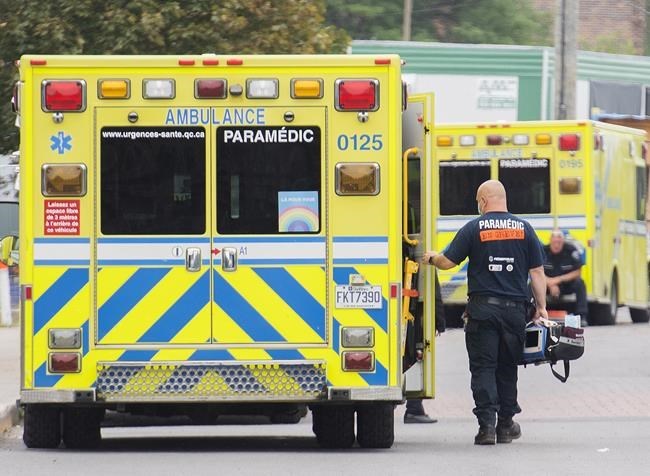MONTREAL — Quebec expects to have its first all-electric ambulances hit the road next year, which provincial Economy Minister Pierre Fitzgibbon said Monday will position the province as a leader in electric transportation.
Demers Ambulances and Lion Electric unveiled at a news conference in Beloeil, south of Montreal, their first 100 per cent electric ambulance, which they described as the "ambulance of the future."
Demers Ambulances president Alain Brunelle and Lion Electric president Marc Bédard said the new model has been five years in the making and was designed according to needs expressed by paramedics.
"This is an extraordinary evolution for paramedics' security, and also for their — and their patients' — comfort," Brunelle said. "It's the only 100 per cent electric vehicle, built to be an ambulance, in the world."
The companies hope to deploy 1,500 vehicles in North America before 2026, and to eventually market it globally with financial support from the federal and provincial governments.
Fitzgibbon said Quebec invested $8 million in the project, made possible through Quebec's Electrification and Climate Change Fund.
"It unites Quebec champions around a shared project of innovation," Fitzgibbon said at the press conference. "The investment is making us proud, as it symbolizes the success, the intelligence and innovation of Quebec."
Lion Electric will build the chassis and the batteries at its plants in St-Jérôme and Mirabel, while Demers Ambulances will look after the medical compartment and the final assembly.
Bédard said Lion's experience building a fleet of electric buses and trucks that has covered more than 13 million kilometres made it possible for the company to develop the new ambulance. He said the vehicle will be able to travel 200 kilometres on a single charge.
"We want a society with better health and to allow future generations to breathe easily," Bédard said. "For us, this ambulance is to paramedics, and to society, what a school bus is to our children."
Quebec Health Minister Christian Dubé also welcomed the project, saying the health-care system needs innovation. He said the design of the new ambulances will allow paramedics to provide faster and better care across the province. "We need to look at things differently," Dubé said, referring to the new ambulance as "a small hospital."
This report by The Canadian Press was first published on Oct. 18, 2021.
Virginie Ann, The Canadian Press



